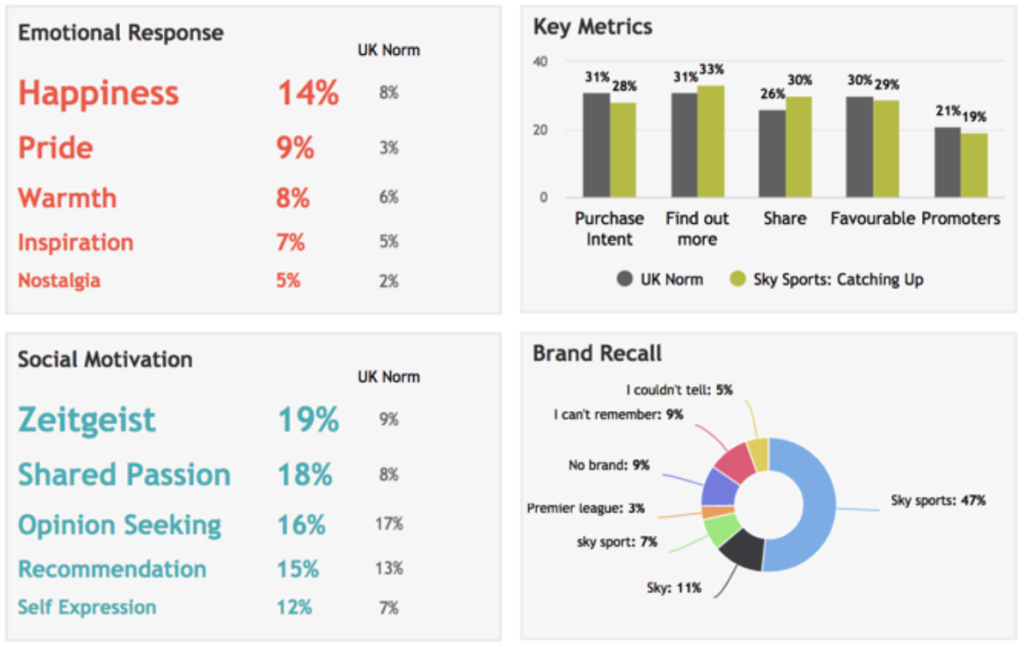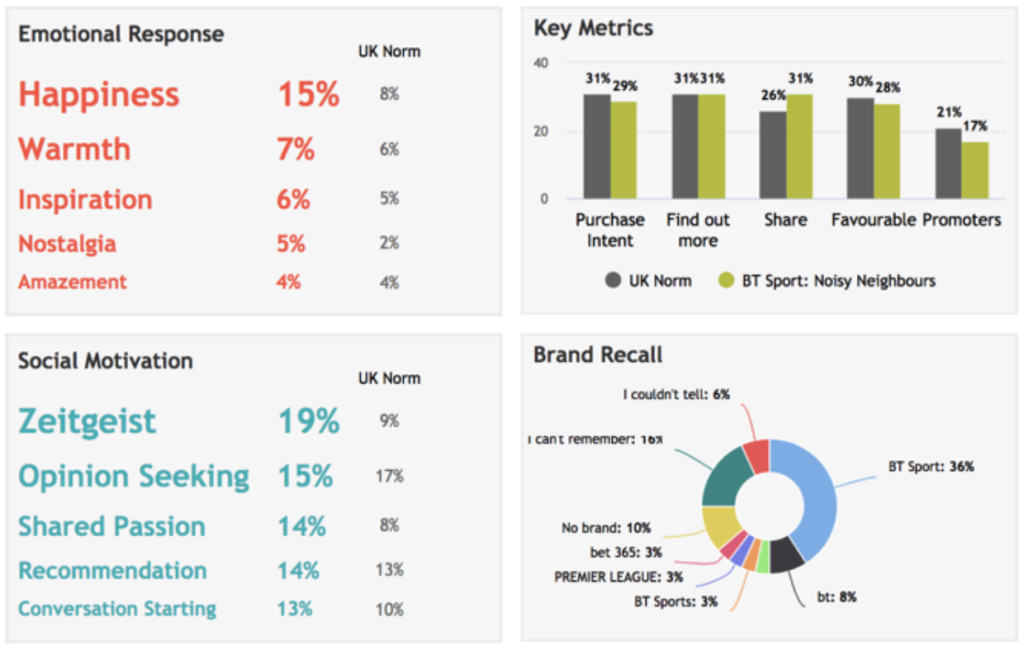An Emotional Return For The Premier League
Football in the UK returned to our screens last week after months of lockdown.
Matches in the Premier League and EFL were shown live on Sky Sports and BT Sport – albeit without fans in the stands and some odd fake crowd noise.
The return of footy was viewed as an important step towards lifting the spirits of a nation laid low by the coronavirus.
But just how has the return of football been greeted by the public during the COVID pandemic?
Well, we tested ads by broadcasters Sky Sports and BT Sport triumphantly announcing the much-awaited return of soccer to our screens using our content testing tool UnrulyEQ.
As well as measuring people’s emotions to the news, we wanted to see whether the content was effective at inspiring viewers to act, whether that’s buying a subscription, wanting to find out more or sharing the news with their social networks.
We also compared the results to other football ads to see if the return of football following lockdown had had an impact on people’s emotions.
Here is what we found:
Sky Sports – We’ve got a lot of catching up to do
Part of Sky Sports’ “Feel It All” campaign, the ad tries to excite viewers by showing footage of Premier League players getting ready for the big return. Opting for an epic, classical tune that swells towards the climax of the video and powerful narration, it certainly elicited strong emotions from viewers.

Happiness was the most common emotion felt by consumers, with 14% of viewers experiencing strong feelings of happiness while watching. That’s slightly lower than BT Sport’s ad managed, but almost twice the levels of happiness the average UK ad and football ad generates. Clearly people were happy to see football back. Pride was the second most prevalent emotion at 9% – three times the level of the average UK ad and 125% the average football ad.
Despite it only being a few months since football was shut down because of the pandemic, nostalgia was 150% higher than the average for football ads, while warmth and Inspiration were also above the average for both UK and football ads.
However, despite such heightened emotions from viewers, the ad did not perform as well when it came to brand metrics, which possibly explains why the ad only managed a slightly disappointing EQ score of 5.2 for overall effectiveness, just above the UK of 5 but way off some of the best-performing football ads.
Purchase intent, brand favorability and brand promoter scores were all below the UK norm. A third of viewers did express an interest in finding out more, slightly more than the UK average of 31%, while people were more willing than average to share the ad, mainly because they wanted to be part of a major talking point in the country.
However, less than two-thirds of viewers could correctly name the brand responsible, despite Sky Sports’ strong association with football and the Premier League, in particular.
Despite the Sky logo present throughout on the top right-hand side of the screen, and the end frame reaffirming the brand responsible, the ad attracted lower-than-average brand recall, with 3% thinking it was for the Premier League. This could simply be down to the fact that the name of the brand is never mentioned by the narrator.

BT Sport – Noisy Neighbours
BT Sport took a very different approach to Sky for its return ad – using a tub-thumping 70s rock anthem from Slade and footage that focused on the fans watching at home during lockdown rather than the players.
The emotional profile, however, was very similar, with happiness, warmth, inspiration and nostalgia again the top emotions — all above the UK and football norm. Unlike Sky, pride was not a key emotion and there were increased levels of negativity towards the ad, particularly disgust. This could be due to the ‘noisy neighbour’ concept which highlights differences between people at a time when the tone of the country over the last few months has been one of unity.
Like Sky, brand metrics were also unimpressive, leading to another EQ score of 5.2, with only viewers’ willingness to share the ad above the UK norm. For a brand keen grow their subscription base by capitalising on the huge appetite for football’s return, this is disappointing.
With no clear call to action – shown by that people away feeling 44% less informed than the UK norm – viewers were stuck wondering what to do next.
With the brand name only visible briefly at the end, viewers also clearly struggled to make a connection between the content and the brand. In fact, only 47% correctly identified BT Sport as the company behind the ad – way below the UK norm. Three percent of viewers even name Bet 365 as the brand responsible, while the same proportion of viewers incorrectly named the Premier League as the brand. Ten percent thought there was no brand present.

To find out more about UnrulyEQ head here or reach out to book in a call with our Insights experts.
